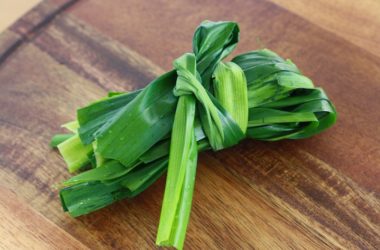Put simply, a chesty cough is a cough that produces mucus or more commonly known as phlegm. Sometimes it is also known as a wet or productive cough. Needless to say, it is the complete opposite of a dry cough in which no phlegm is produced or expelled at all.
There are over-the-counter (OTC) medications for a chesty cough. Two of the most common examples are expectorants and mucolytics, both of which help loosen sticky phlegm in the lungs, thus allowing it to be expelled without trouble. There are also chesty cough treatments available that combine both medications.
However, just like any other pharmaceutical product on the face of the planet, the administration of these chesty cough medications tends to come with a bunch of unfavorable side effects. Some of them are headache, dizziness, nausea, vomiting and diarrhea. Some people may develop skin rashes after taking them.
It’s because of these pesky side effects why a lot of people with chesty coughs are wary of taking expectorants and mucolytics. Instead of taking these OTC medications, they rely on all-natural solutions. The following are some of the tried-and-tested effective home remedies for a chesty cough.
Steam
Inhaling steam can help break down thick phlegm, thus allowing the person to cough it out and also breathe much better. His or her face should be placed about half a foot above a small glass bowl with boiling water and then the steam produced should be inhaled. Placing a few drops of peppermint or eucalyptus essential oil into the bowl is a good idea.
Warm Shower
Another way to break up thick phlegm with the help of steam is by having a steamy shower. Health authorities recommend for the person with a chesty cough to stay in the bathroom for at least 5 minutes for best results. It’s important to remember that one must opt for a warm shower rather than hot to keep at bay complications.
Water
Everyone knows that drinking about 2 liters of water per day is a must. The importance of keeping the body properly hydrated cannot be stressed enough especially if the individual has a chesty cough — glugging down plenty of water per day helps make it easier for the body to get rid of excess phlegm in the chest by having them loosened up.
Ginger Tea
It’s no secret that ginger tea is a superb home remedy for a lot of issues that are related to the digestive system, from acid reflux to diarrhea. A few cups of ginger tea may be consumed throughout the day if a person is suffering from a chesty cough. That’s because this herbal beverage’s antioxidant and anti-inflammatory properties can help provide relief.
Honey
About half an hour before hopping into bed, experts highly recommend the intake of about 1 to 1 1/2 teaspoons of pure and organic honey. Its soothing properties can help encourage a good night’s sleep. This simple home remedy for a chesty cough works very well for kids as well as adults.
WARNING: If your chesty cough refuses to go away after 1 to 2 weeks or tends to worsen, make sure that you pay your doctor a visit. This is especially true if it’s accompanied by signs and symptoms such as fever, chills, shortness of breath, wheezing, trouble swallowing, and phlegm that looks bloodied or brown.
Don’t forget to share this article on your various social media sites so that everyone you care about who suffers from chesty coughs may give these home remedies a try, too. And if you know some other effective all-natural solutions for a chesty cough, feel free to share them in the comments section below.













